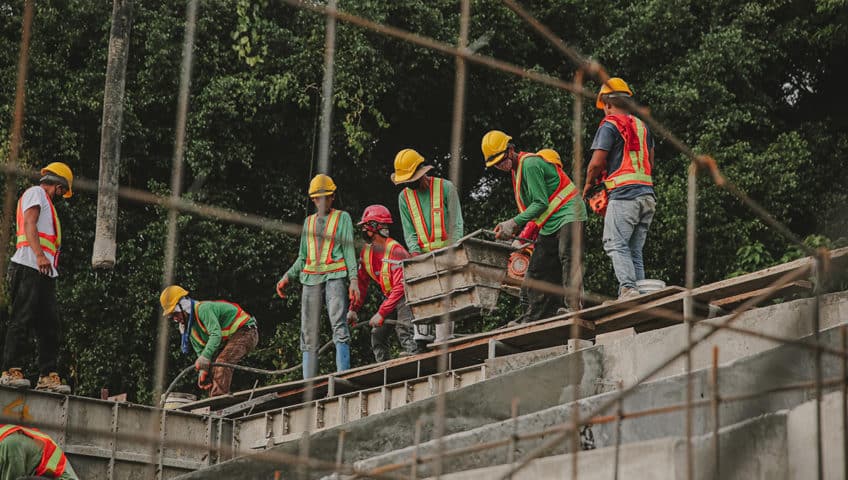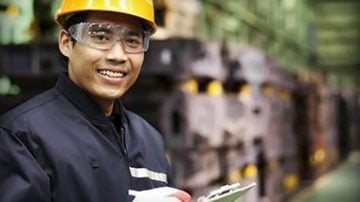Ensuring workplace safety isn't just about following rules – it's a core commitment to the welfare of employees and the smooth functioning of operations. Workplace safety involves implementing dynamic strategies and best practices consistently to build a strong safety culture within Mexican industries. From navigating regulatory requirements to engaging employees, Mexican contractors can proactively uphold safety standards while boosting operational efficiency in this ever-evolving industrial landscape.
Global Insights on Workplace Safety Culture
Workplace safety culture is incredibly important in all industries across the globe. The emphasis on safety culture has been gaining momentum due to its far-reaching impact on various aspects of business operations, employee well-being, and overall organizational performance. A strong safety culture not only aids in preventing accidents but also fosters an environment where employees feel comfortable reporting safety concerns, leading to improved morale and productivity.
The dynamic nature of safety culture allows for continuous improvement and adaptation to emerging risks, ultimately contributing to higher productivity and job satisfaction among workers. The positive impact of safety culture on employee safety performance further underscores its significance in reducing psychosocial hazards and promoting a secure work environment. This collective effort to build a culture of safety and health at work not only safeguards human life but also contributes to better labor/management relations and the delivery of higher-quality products and services.
Unique Considerations for Mexican Workplaces
When considering safety culture in Mexican workplaces, it's essential to consider the unique cultural and regulatory factors that influence safety practices within their specific industrial landscape. The Mexican work culture places significant emphasis on personal relationships, loyalty, strong hierarchy, and status consciousness, reflecting deep-rooted cultural values that impact the overall approach to safety within the workplace.
These cultural considerations not only shape the attitudes toward safety but also impact the implementation of safety initiatives and programs. Understanding and addressing these cultural nuances helps Mexican contractors develop effective safety strategies that resonate with the workforce and align with the regulatory framework governing workplace safety in Mexico.
Leveraging Technology and Training To Support Workplace Safety
Technologies for Workplace Safety Culture
- Safety Management Software: These platforms provide comprehensive solutions for incident reporting, safety audits, and compliance management, allowing organizations to centralize safety-related data and streamline safety processes effectively.
- Wearables and IoT: Wearable devices and Internet of Things (IoT) technology facilitate real-time monitoring of environmental conditions, employee activity, and equipment performance, enabling proactive hazard identification and risk mitigation.
- Interactive Tools for Training: Digital training resources such as e-learning modules, virtual reality simulations, and interactive training software engage employees in immersive safety education, enhancing knowledge retention and practical application of safety protocols.
- Robotics: Automation and robotics contribute to improving workplace safety by handling hazardous tasks, reducing human exposure to risks, and augmenting safety measures in manufacturing and industrial settings.
Training Methods for Workplace Safety Culture
- Tailored Training Programs: Customized safety training programs address industry-specific hazards, cultural considerations, and language preferences, ensuring relevance and effectiveness in promoting safety awareness and behavioral change.
- Real-Time Training Management: Training management systems facilitate efficient scheduling, tracking, and administration of safety training initiatives, enabling organizations to monitor compliance, assess training effectiveness, and address skill gaps promptly.
- Interactive Experience Learning: Interactive training experiences enable employees to familiarize themselves with safety procedures and emergency protocols through engaging and immersive educational content, promoting a deeper understanding of safety practices.
Learn more on Tips for Implementing Effective Training Programs.
Strategies for Cultural Integration
Successful integration of safety culture in Mexican industries requires a tailored approach. This involves understanding and respecting the cultural nuances that influence safety practices in Mexican industries while leveraging global best practices. Conducting thorough assessments of the existing safety culture and identifying areas for improvement, can help contractors to develop strategies that align with both international standards and local cultural norms, ensuring effective integration.
Working with a dedicated team experienced in workplace safety, safety regulations, and safety compliance can be the most effective path to establishing and maintaining a workplace safety culture for your organization. Industrial Compliance & Safety is a Pre-Qualification assistance company with over 20 years of experience in the industry and business. Our workplace safety experts know the ins and outs of ISNetworld®, Avetta®, PEC Premier, and all the other large and small certification systems out there.
Contact Industrial Compliance & Safety today for support with your business's safety culture, regulatory compliance, and account management with leading industry certification companies ISNetworld®, Avetta®, and Veriforce®, and others!
Ready To Get Compliant Today?
Call us or complete the form below!





